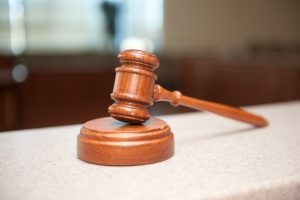Several years ago, Florida lawmakers decided to enact a measure that would alter F.S. 90.702 (testimony by experts) and F.S. 90.704 (basis of opinion testimony by experts), forgoing the so-called “Frye standard” (so named for the 1923 case of Frye v. U.S.) and instead adopt the more stringent and widely-used “Daubert standard”(so named for the 1993 U.S. Supreme Court ruling in Daubert v. Merrell Dow Pharm., Inc.). Then earlier this year, the Florida Supreme Court in the per curiam ruling of In re: Amendments to the Florida Evidence Code, decided NOT to adopt the Daubert standard – even though the legislature had passed a law enacting it – for two reasons:
- Concerns regarding the constitutionality of the amendment;
- Procedural concerns with the law creating a section that isn’t part of the state’s evidence code.

So why does any of this matter when it comes to your personal injury lawsuit? The truth is, it may have a significant impact in the type of evidence you are allowed to present in your case. The federal courts and most other states now follow the Daubert standard, while Florida is one of the few states that still follows Frye.
The Frye standard asks the judge to ascertain whether an expert’s scientific testimony should be allowed by asking whether the technique is generally accepted as reliable in the relevant scientific community. The Daubert standard, meanwhile, is much more detailed, asking the judge to weigh the expert’s scientific methods against a number of factors, including whether the theory can and has been tested, whether it’s been subject to peer review and publication, whether it has a known potential error rate, whether there are standards of controlling the operation of the testing and whether it’s attracted widespread acceptance in the relevant scientific community.
Although it’s certainly important to fully vet expert witness testimony, the concern is that judges are not scientists and may not be in the best position to make this call. Further, there are concerns that Daubert is more favorable to defendants, not just in criminal cases but in civil action as well.
When evidence is excluded for not meeting these stringent standards, it can topple the entire case. That’s what happened in a recent case before the U.S. Court of Appeals for the Seventh Circuit. This was a product liability lawsuit in which plaintiff’s 23-year-old college student son tragically died in a fire at plaintiff’s home in 2010. Plaintiff alleges the fire was caused by a defective lithium ion battery from his son’s laptop. Plaintiff sued several separate manufacturers, including the maker of the battery pack, individual battery cells and the laptop. The sole evidence of causation plaintiff had were the testimony of two expert witnesses, one an inorganic chemist who is an expert in battery safety and a retired certified fire investigator. However, the district court granted defense motion to exclude this testimony for failure to adhere to the standards set forth in Daubert. Because the plaintiff no longer had evidence of a causal connection, the court granted summary judgment.
The federal appellate court affirmed.
It’s imperative that your own injury attorney carefully and properly vet the expert witnesses upon whom you will rely to prove your case. Having an experienced Fort Myers defective products lawyer on your side is imperative.
Call Associates and Bruce L. Scheiner, Attorneys for the Injured, at 1-800-646-1210.
Additional Resources:
Gopalratnam v. ABC Insurance Co., Dec. 1, 2017, U.S. Court of Appeals for the Seventh Circuit
More Blog Entries:
The Role of Social Media in Your Florida Personal Injury Lawsuit, Dec. 7, 2017, Fort Myers Injury Lawyer Blog
 Florida Injury Lawyer Blog
Florida Injury Lawyer Blog





